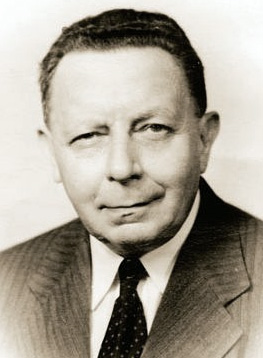| Profile | Major Works | Resources |
Henryk Grossman, 1881-1950.

Born in Cracow, then in Austrian Galicia, to a prosperous Jewish family, Henryk Grossman was already an activist and organizer of the socialist movement in Galicia, before going on to study in Vienna in 1908. After 1918, Grossman became a Polish citizen, professor of economics at the Free University of Warsaw and member of the Polish Communist Party. Facing political difficulties, Grossman emigrated to Frankfurt, Germany in 1925, at the invitation of his former Vienna mentor Carl Grünberg. He fled Germany in 1933, proceeding through Paris and London to New York, where he remained for the duration of the war. He returned to Europe, taking a position at Leipzig (East Germany) in 1949, but died shortly after.
Henryk Grossman was one of the major revisionist thinkers during the Marxian debate on the theory of crises. Grossman's most famous work (1929) on the breakdown of capitalism takes off from Otto Bauer's model of expanded reproduction. Grossman showed that, with increasing organic composition of capital, capitalism is unable to produce enough surplus value and thus will eventually collapse.
Although Henryk Grossman is most often classified as an Austro-Marxist, he was also associated with the Institut für Sozialforschung in Frankfurt (and thus Horkheimer, Adorno, Marcuse and the "Frankfurt School" of Marxian sociology). He wrote a couple of important historical studies on Sismondi.
|
Major Works of Henryk Grossman
|
|
HET
|
|
Resources on Henryk Grossman
|
All rights reserved, Gonçalo L. Fonseca
